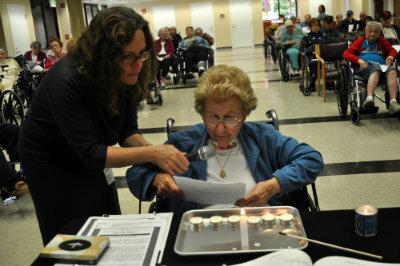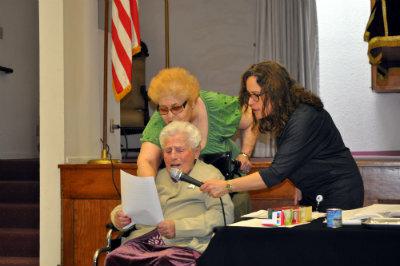Holocaust and Heroism Remembrance Day


Holocaust and Heroism Remembrance Day

Last week, Jewish Home seniors gathered at the Schulman Activities Center for a special Yom Ha'Shoah— or in English, Holocaust and Heroism Remembrance Day— program.
Skirball Director of Spiritual Life, Grancell Village Rabbi Karen Bender led the seniors in prayer and song.
During the program, six seniors came to the front of the room to light six candles, each candle representing one million of the six million Jews who died in the Holocaust.

Several survivors were in attendance. Some shared poetry, sang songs, and spoke about their experiences.
Rabbi Bender emphasized the importance of Yom Ha'Shoah is remembering. "Each year on this special day, we must remember the victims and the heroes of this catastrophe and we must make sure that a tragedy like this will never happen again."